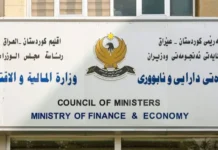Good Afternoon ,
US SENATORS CRITICIZE DEMOCRATS FOR ‘PARTISAN POLITICS’ AMID STABLECOINS BILL FAILURE
In a negative development for the U.S. crypto industry, the highly anticipated stablecoins legislation failed to advance in the U.S. Senate after not receiving enough support from Senate Democrats. Several Republican senators have slammed the Democrats for putting “partisan politics above policy.”
Democrats Block Stablecoins Bill
On Thursday, the Guiding and Establishing National Innovation for US Stablecoins (GENIUS) Act failed to pass the cloture vote in the Senate. Only 49 senators voted to advance the bill, falling short of the 60-vote threshold required to end debate.
Notably, two Republican senators also voted against advancing the bill alongside Democrats.
In February, Senator Bill Hagerty introduced the GENIUS Act to create a framework allowing tokens like USDT and USDC to fall under Federal Reserve rules.
The bill, co-sponsored by Senators Tim Scott, Cynthia Lummis, Kirsten Gillibrand, and Angela Alsobrooks, was designed to establish a:
“safe and pro-growth regulatory framework that will unleash innovation and advance the President’s mission to make America the world capital of crypto.”
Despite being considered bipartisan, ten Senate Democrats expressed last-minute concerns on May 3, with four former supporters reversing their positions.
Their objections included:
- Missing AML (Anti-Money Laundering) and national security safeguards
- Ambiguous regulations that could expose crypto markets to abuse
Senator Elizabeth Warren took the strongest stance, urging rejection of the GENIUS Act. On May 4, she claimed the Trump family could benefit from World Liberty Financial’s USD1 stablecoin deal with MGX, a UAE-based firm.
This deal involved a $2 billion investment linked to Binance and WLFI’s stablecoin, which Warren said would “enable this type of corruption.”
US Senators Call Out ‘Political Gamesmanship’
Senator Tim Scott, a co-sponsor of the bill and Chairman of the Senate Banking Committee, denounced the opposition on May 8:
“It should have been a historic day for Americans (…) Instead, we witnessed a disappointing display of political gamesmanship that puts partisan politics above policy, and obstruction above innovation.”
Scott insisted the shift wasn’t about the bill’s content, but a political move against President Trump and his legislative goals.
Senator Lummis echoed this on X:
“Make no mistake, digital assets are the future and America must lead the way.”
“It’s important that we continue moving digital asset legislation forward that preserves America’s dollar dominance and makes America the crypto capital of the world.”
Bessent Blasts Missed Opportunity
Treasury Secretary Scott Bessent also weighed in, saying the world needs American leadership for stablecoins and digital assets to thrive.
“Without it, stablecoins will be subject to a patchwork of state regulations instead of a streamlined federal framework.”
“The world is watching while American lawmakers twiddle their thumbs. Senators who voted to stonewall U.S. ingenuity today face a simple choice: Either step up and lead or watch digital asset innovation move offshore.”
@ Newshounds News™
Source: Bitcoinist
~~~~~~~~~
BLACKROCK, CRYPTO TASK FORCE DISCUSS ETP STAKING, TOKENIZATION
Staking for Ether ETFs has been one of the hot topics in 2025, with Grayscale and Fidelity both filing for rule changes that would allow this staking functionality.
Wall Street giant BlackRock recently met with the SEC’s Crypto Task Force to discuss two key areas:
- Staking within crypto exchange-traded products (ETPs)
- Tokenization of securities
These discussions could significantly advance institutional interest in crypto markets.
ETP Staking and SEC Conversations
According to a May 9 memo published by the task force, BlackRock initiated the meeting to:
“[d]iscuss perspectives on treatment of staking, including considerations for facilitating ETPs with staking capabilities.”
BlackRock has emphasized that while Ether ETFs have seen success, they are less effective without staking.
Other ETF issuers echo this sentiment. On Feb. 15, the New York Stock Exchange proposed a rule change to enable staking services for Grayscale’s spot Ether ETFs.
In April, the SEC delayed its decision on this proposal. As it stands, BlackRock and Grayscale remain behind the largest Ether ETFs by market cap, according to Sosovalue.
Proof-of-stake blockchains allow users to lock their tokens to earn yield. If the SEC approves staking for Ether ETFs, this could pave the way for similar requests for altcoins, including Solana ETFs.
Tokenization Also in Focus
In addition to staking, BlackRock addressed the tokenization of securities within the federal securities regulatory framework.
Securities include stocks and bonds—assets where investors expect monetary gain. Tokenization offers several benefits:
- Faster settlement times
- Lower costs vs. traditional finance infrastructure
- 24/7 market access
BlackRock already runs a tokenized U.S. federal debt fund called BUIDL, which is currently the largest of its kind, with a $2.9 billion market cap.
Other players include Franklin Templeton, whose BENJI fund also tokenizes securities.
Robinhood Enters the Game
Meanwhile, brokerage firm Robinhood is exploring tokenization as well. It is reportedly working on a blockchain solution to allow European retail investors to trade U.S. securities such as stocks.
@ Newshounds News™
Source: CoinTelegraph
~~~~~~~~~
Seeds of Wisdom Team RV Currency Facts Youtube and Rumble
Newshound’s News Telegram Room Link
Follow the Roadmap
Follow the Timeline
Seeds of Wisdom Team™ Website





